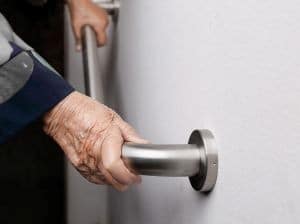
Online shopping might feel like it’s designed for the younger crowd, but that’s not true anymore. In fact, more and more seniors are finding that it’s one of the easiest and most comfortable ways to shop. You don’t need to drive anywhere. There’s no waiting in long checkout lines. And best of all, you can compare items and prices without walking from store to store. But that doesn’t mean there aren’t risks—or moments of confusion. With so many websites, passwords, and screens popping up all over the place, it’s easy to feel overwhelmed. The good news is, a few helpful habits can make your shopping smoother, safer, and even a little fun. Here’s how to shop online with more confidence and less stress.
Start Slow and Stick With What Feels Familiar
When you’re just getting started, it’s totally fine to stick with stores you already know and trust. If you’ve bought something from a certain company in the past—maybe you ordered by phone or shopped in person—you’ll likely feel more at ease visiting their website. This builds confidence, and when you’re confident, you’re less likely to make rushed decisions. It also helps to take your time. There’s no timer counting down how long you can browse. If you’re not sure about something, you can always come back later. Bookmarking websites you like and writing down login details on paper (kept somewhere safe) can make everything feel more organized.
The biggest hurdle at the beginning isn’t the shopping—it’s getting used to the screens and how they behave. Some buttons are small. Some pages load slowly. Some forms seem confusing. That’s okay. Learning how to spot what’s important just takes a little time, and once you get the hang of it, things really do fall into place.
How to Know What’s Safe and What’s Not
One of the trickiest parts of shopping online is figuring out which websites are trustworthy. A helpful trick is to look at the web address. If it starts with “https” (with an “s” at the end), that usually means it’s secure. That little “s” actually stands for “secure,” and it means your information is more protected. Another thing that helps is reading reviews from other shoppers—but make sure they seem honest and varied. If every review is glowing and sounds the same, it could be a red flag.
It’s okay to feel unsure about all the different security terms that come up online. You’re not alone. Just like anything else, it’s a learning curve, and nobody becomes an expert overnight. What helps most is becoming more comfortable with digital literacy, which simply means understanding how technology works well enough to use it with confidence. That doesn’t mean you have to know all the ins and outs. It just means you know what to look for and what to avoid.
Also, trust your gut. If something doesn’t feel right—like if a site is pressuring you to buy quickly or asking for too much personal information—it’s perfectly okay to close the tab and walk away. You wouldn’t let someone rush you at a store, so don’t let a website do it either.
Deals, Discounts, and One Surprising Treasure Trove
It’s easy to fall into the trap of only looking at the big-name websites when you want to shop online, but sometimes the real hidden gems are in the places you’d least expect. Believe it or not, one of the best-kept secrets for seniors looking to save money is a good online thrift store. These shops offer everything from clothing to home goods, often at prices that are hard to beat. And they’re not just for the younger crowd. Many of these stores now offer senior-friendly layouts, detailed item descriptions, and easy returns.
What’s wonderful about these kinds of stores is that you’re often buying from real people or smaller sellers, not just giant warehouses. That means the customer service can feel more personal, and you might even find hand-written notes in your package. There’s something nice about that in a world where so many things feel rushed and automated. Plus, shopping secondhand is a gentle way to reduce waste and give something a second life—something many older shoppers already value.
Make Paying Easier Without Giving Up Safety
Paying for your items is often where people get nervous. There’s a lot of talk about identity theft and scams, and while it’s important to stay alert, it doesn’t mean you need to be afraid. Many websites now offer safer ways to pay, like using a one-time code sent to your phone, or checkout systems that don’t require you to type your full card number every time. These are helpful because they add a layer of protection without making things harder.
Some seniors find it helpful to have one credit card they only use for online shopping. That way, if anything unusual happens, it’s easier to spot. You can also ask a family member or trusted friend to help you set up alerts on your account, so you’ll get a text or email any time a charge is made. That way, nothing slips past you.
Also, keep in mind that you never need to pay by wire transfer or gift card when shopping online. If a seller is asking for payment that way, it’s a big warning sign. Stick to what feels safe and simple.
Ask for Help—and Then Pass It On
It’s okay to ask for help, especially when something feels confusing. You might have a neighbor, a grandchild, or a church friend who shops online often. Most people are happy to walk you through the process, especially once they see how willing you are to learn. In fact, sometimes just watching someone else shop online can teach you more than any tutorial ever could.
And once you’ve gotten the hang of it, don’t be surprised if other friends your age start asking you for tips. That’s one of the most satisfying things about learning something new—it gives you something to share. You may even become the go-to tech helper in your group. It’s not about being perfect; it’s about being open, curious, and unafraid to ask questions.
Online shopping doesn’t have to be scary or frustrating. With a little patience, some smart habits, and a willingness to learn, it can be just as natural as flipping through a catalog or walking into your favorite store. You’re not too old for this. In fact, you might just be better at it than you think.








